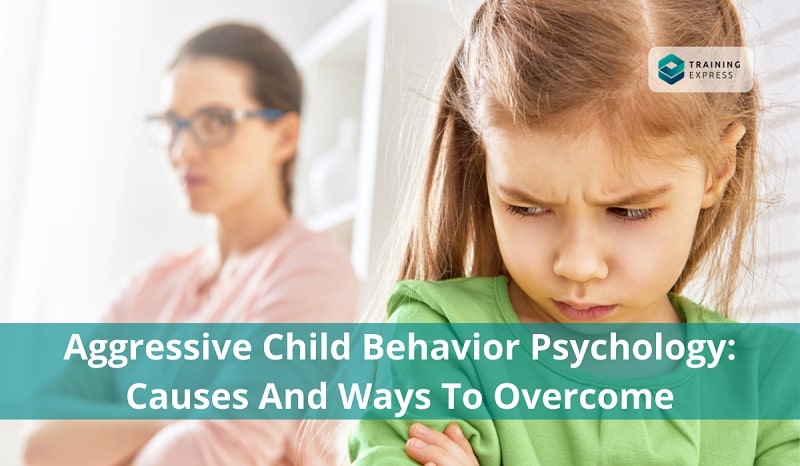
Children do and say all sorts of cute things that warm our hearts. But, sometimes their constant wailing and tantrums drive us crazy. Children tend to lash out sometimes, as they are yet to master the practice of self-control. They often lack the communication skills to express themselves peacefully. Altogether, this issue is labelled as aggressive child behavior psychology in textbook terms.
Aggression is frequently unintentional. In fact, it is often a child’s means of establishing himself. Parents can undoubtedly calm down their unruly children. They just need to take the help of some tried and tested ways.
Table of Contents
What Is Aggressive Child Behaviour Psychology?
Psychologists have aptly defined aggressive behaviours. It is actions taken with an intent to harm another person. However, in the case of a child, their purpose has to be taken into consideration. Besides, considering and comparing the consequences of their actions is a given.
Because not every child pushes his playmate into the ground intending to hurt them. Hence, aggressive child behavior psychology branches out in two directions. One is instrumental aggression. And another is hostile aggression.

Instrumental aggression often has a particular objective to reach. Instrumental aggressiveness is most common among very young children. Anyone who has supervised a playground knows it.
One probable explanation is that young children lack language and social abilities. Hence, the little angels deem instrumental aggression necessary. It helps them to stake their claim and establish their rights.
Hostile aggression, on the other hand, causes intended harm merely for enjoyment. Unfortunately, we can see many cases of malicious attacks every day. For instance, when a child bullies another by calling them rude names.
Causes Of Aggressive Child Behaviour
Aggression in children can be a sign of a variety of underlying issues. Besides, having it is common for a wide range of psychiatric disorders.
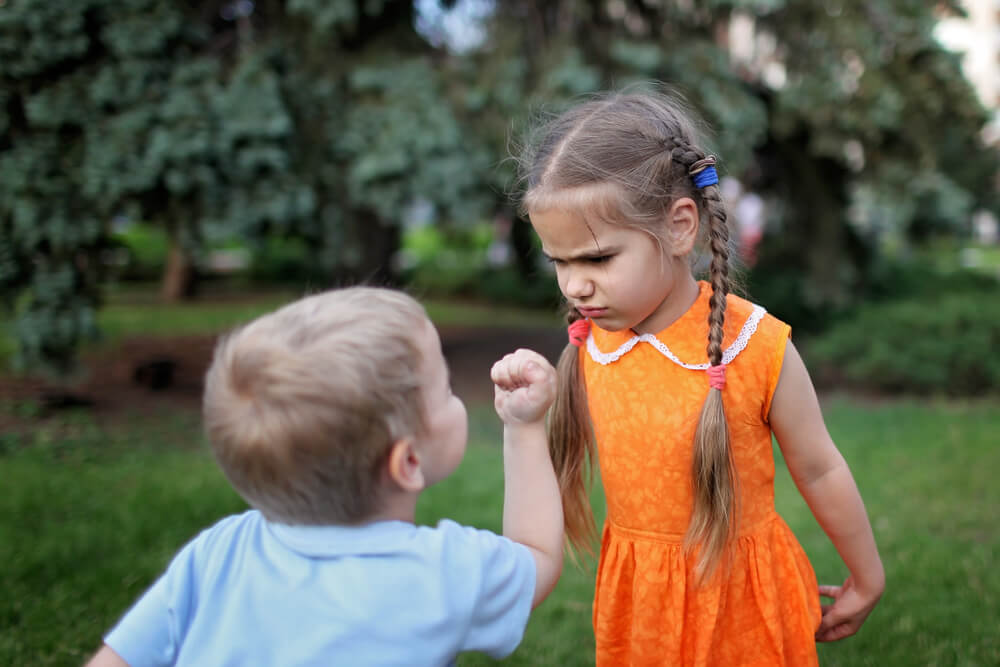
Some underlying medical problems and life situations could also induce aggression. Hence, the first step in treating aggression is to figure out what’s causing it. That is what aggressive child behavior psychology suggests.
A variety of factors causes aggression. These can be classified into numerous categories. Four psychological factors that can induce child aggressions are:
1. Anger Issues
2. Frustration
3. Stressful surroundings
4. Trauma
Anger Issues
A lot of the aggressive actions of a child stems from underlying anger issues. Consequently, anger issues of a child arise from lacking knowledge of appropriate coping mechanisms.
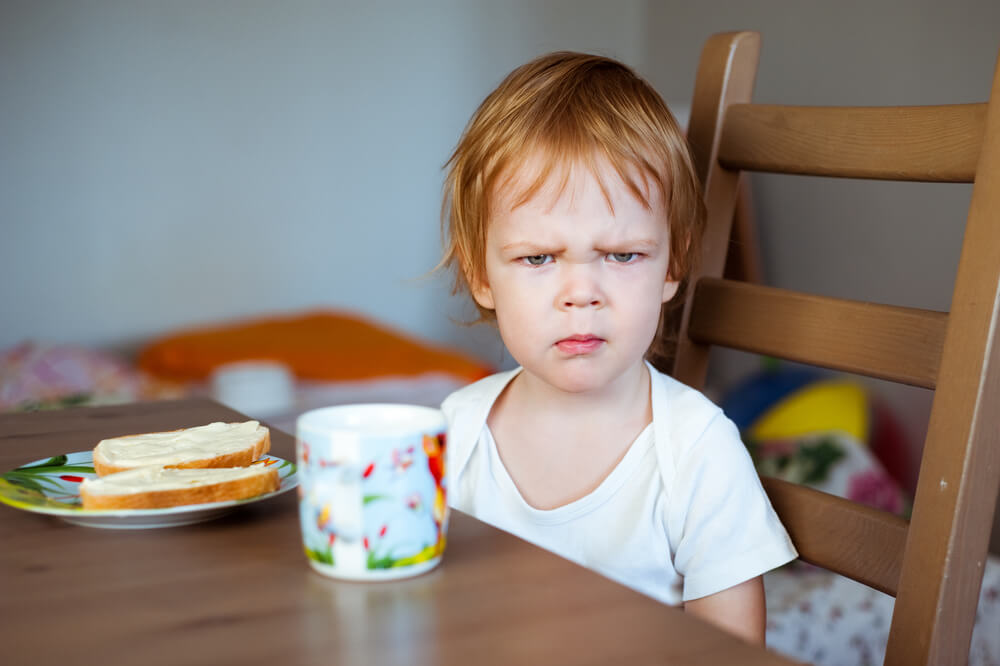
Often, young children get bullied on the school premises by other kids. This instability and psychological insult cause negative temperamental influence. Furthermore, a harsh or coercive parenting style could have an adverse psychological impact on a child.
Children with constant unrelieved stress have anger issues. It is a proven aspect of aggressive child behaviour psychology.
Frustration
Aggression can be seen in children who have challenges with cognition. Children with intellectual impairment, including autism, fall under this category. Cognitively impaired children find it challenging to communicate their emotions.
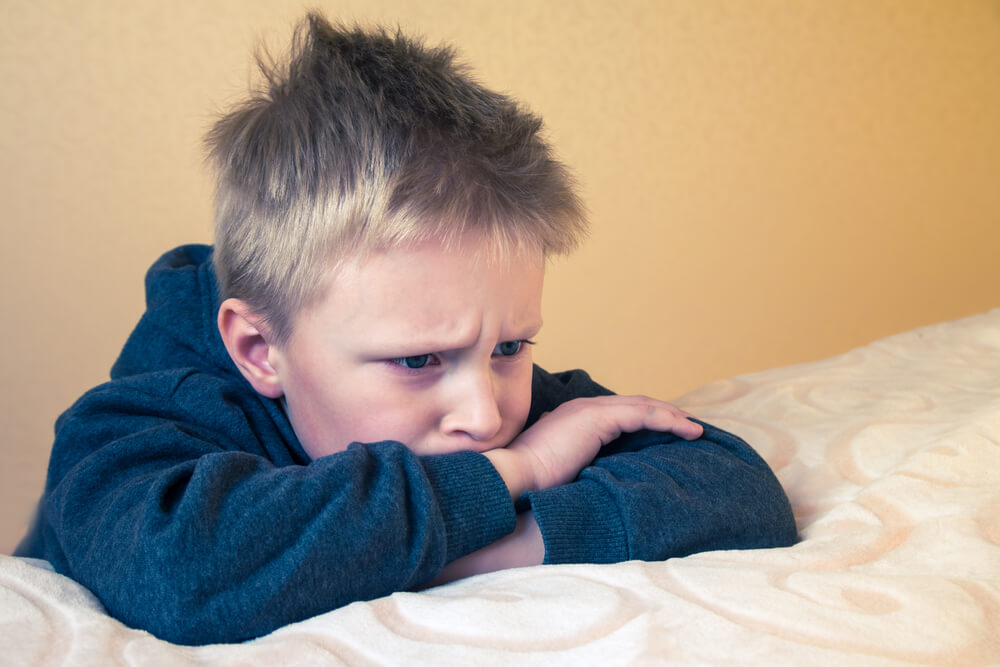
Thus, children with these cognitive illnesses may become aggressive. And it is usually because they’re having trouble coping. Consequently, they might feel anxious or irritated. The situation further escalates because they don’t have the outlet to express themselves.
So, they tend to lash out due to frustration. Consequently, aggression could also be a manifestation of impulsiveness.
Stressful Surroundings
Aggressive child behavior psychology states that a child’s psychological development is hampered in stressful surroundings. Exposure to violence in-home and community can trigger aggression in a child.

Moreover, some children grow up watching their parents bicker away their entire life. These children are prone to violence and aggression. They find it hard to cope with the hurdles of life. As a result, the child often goes astray for not getting a healthy family environment.
Hence, it is imperative to set a positive example. Showing solid emotional control and anger management is notably helpful for this. Additionally, teach your children how to express their feelings, both positive and negative. It is considered an effective anger management strategy in aggressive child behavior psychology.
Practising assertiveness and problem-solving abilities also set excellent examples. Aggression in most children is encouraged by aggressive parents. Parents who are verbally or physically abusive to one another. Hence, being the kind of person you want your children to be when they grow up is the first step to take.
Trauma
Pressures in their environment can trigger violence in adolescents or teenagers. For example, kids could become aggressive due to a traumatic event. Moreover, an underlying emotional disease could make the situation worse.
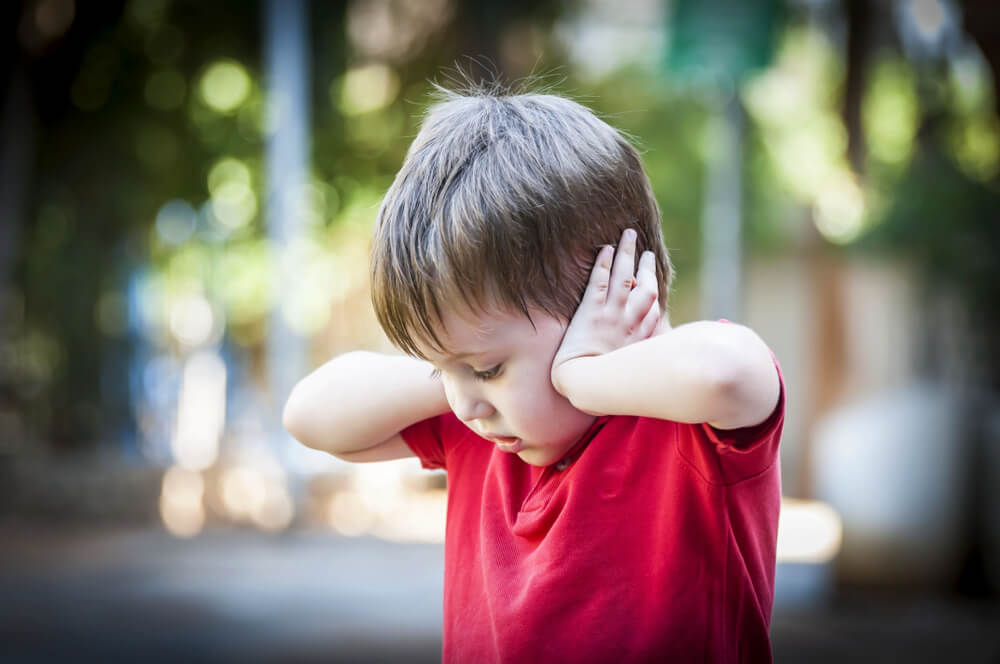
However, it is crucial to remember that this is a rare occurrence. And when violence becomes more frequent, it could indicate a developing emotional problem.
The pressures, risks, opportunities, and consequences that children face influence their aggressive dispositions. We can improve behaviour and affect the trajectory of growth. But we need to adjust these settings first.
Child Aggressive Behaviour Checklist
The Child Conduct Checklist (CBCL) is a frequently used caregiver report form. Parents and teachers can use it for recognizing children’s troublesome behaviour. In addition, it is commonly utilized with teenagers and adolescents in both research and clinical practice.
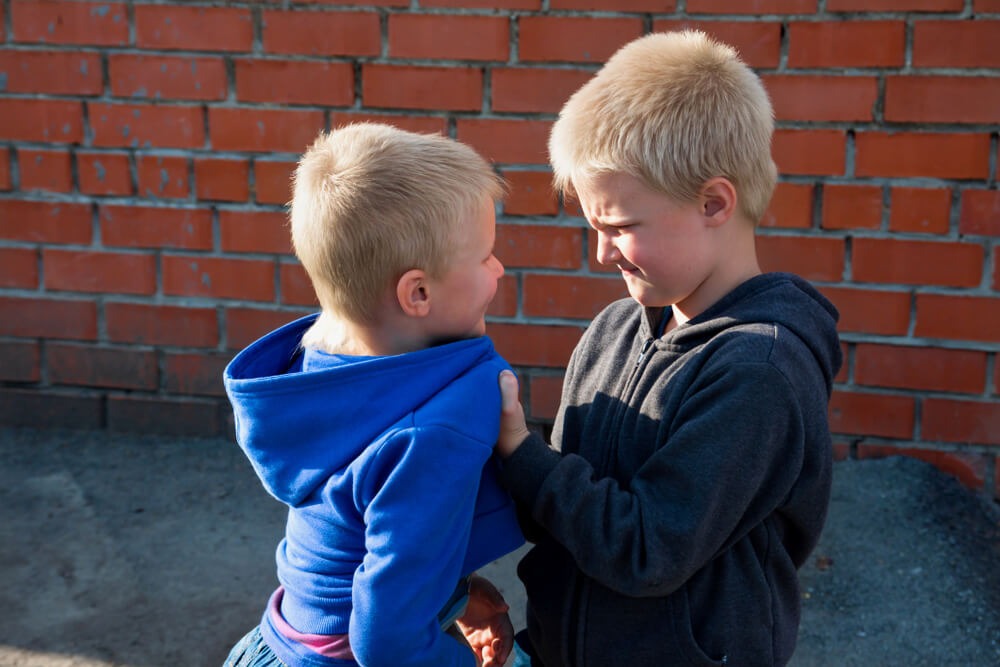
Children aged 6 to 18 should utilize the CBCL/6-18. It has 113 questions on a three-point Likert scale (0=absent, 1=occurs occasionally, 2=occurs frequently). Item answers are limited to the occurrences of the last six months.
The CBCL/6-18 was revised in 2001 and now includes eight empirical syndrome scales:
- Depressed/Anxious
- Despondent
- Somatic complaints
- Societal issues
- Thought problems
- Attention deficits
- Breaching of the rules
- A hostile attitude/aggressive behaviour
To learn more about child aggressive behaviour psychology, and mental health of children, check out this course on Child Psychology and Mental Health Development
How To Deal With Passive-Aggressive Behaviour In A Child?
Passive-aggressive behaviour in a child is another subject related to aggressive behaviour. Your child won’t lash out like an aggressive child would do. Instead, they’ll stop responding to you. Their behaviour will make you feel angry and powerless.
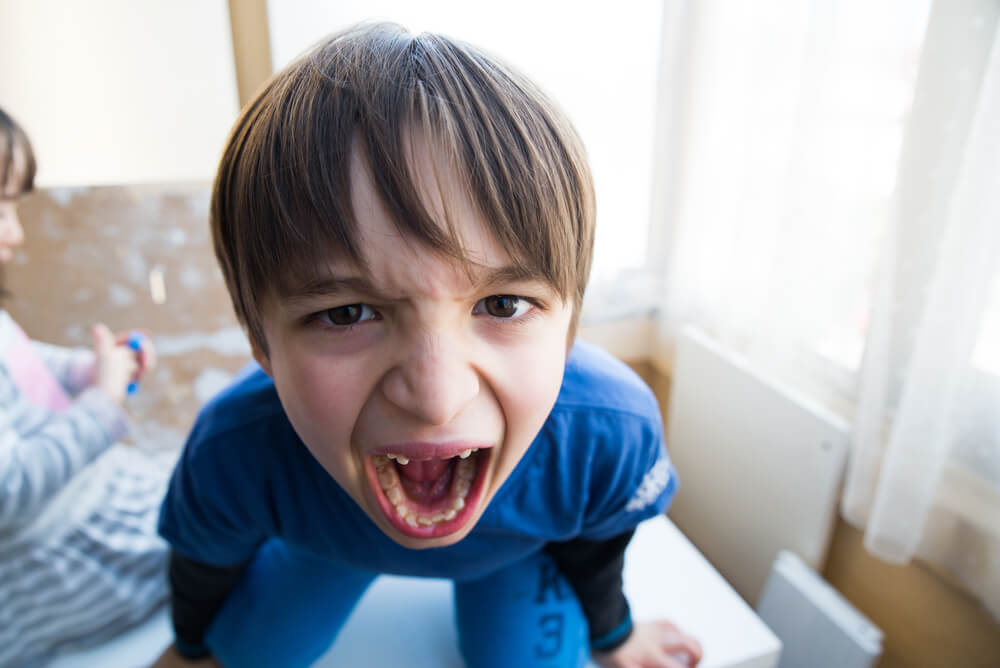
Passive-aggressive kids find it difficult to communicate or express emotions. So, when they feel anger and other challenging emotions, they shut themselves out and resist. Thus, passive-aggressive behaviour is a deliberate and masked way of expressing feelings of anger.
One of the leading behavioural traits of passive aggression in kids is finding solace in defying every adult in their lives. So when your child acts aggressively, it’s critical to talk to them about it because you must nip such behaviour in the bud.
Let them know the consequences of their behaviour in a calm and composed manner. As a result, your child can learn to respond to frustration and other significant feelings more appropriately.
Here are a few strategies that you can take up to deal with your child’s passive-aggressive behaviour:
1. Set Time Limits & Make Them Aware Of The Consequences
2. Reward Good behaviour
3. Avoid Enforcing Aggressive behaviour
Set Time Limits & Make Them Aware Of The Consequences
Talk to your child when things go well. Calmly tell them what you see going on. Let them know if they do not try enough or do not do enough to pull themselves. Consequently, tell them what will happen if they don’t try to improve themselves.

Let your child know they have time limits on what to do. And if they do not meet that time limit, seize their phone or computer until they complete the chore.
It certainly depends on parents for the time frame to be reasonable. Don’t give them a tight edge if the task requires extensive hard work. For instance, give your kid a day or two to clean the attic. But you should not give them more than a couple of hours to do the dishes.
Reward Good Behaviour
Noticing and commending your child’s proper and non-aggressive behaviour is an excellent thing to do. Tell your kids you’re proud of them for their excellent work. Be proud, no matter how small the task is.

Furthermore, say something along the lines of, “you must be proud of yourself” to boost self-love because children require the assurance that their parents are proud of them. Consequently, the reward system cultivates an internal sense of self-worth.
Avoid Enforcing Aggressive Behaviour
The moment you lose control of your emotions is the very moment your child feels like his actions succeeded. So, even when it gets too hard, retaining your temperament is essential. Aggressive behaviour can be reinforced by overly nagging or disciplining youngsters who act violently.

Some children believe that any attention is preferable to none. Negative attention, as a result, might foster aggressive behaviour. Even the tiniest attempt at appropriate behaviour deserves praise. Make every effort to disregard any unpleasant behaviour.
Conclusion
The most excellent strategy to prevent violent behaviour is to provide a stable environment. Every child needs a secure family home with firm, loving discipline. Also, children require full-time monitoring.
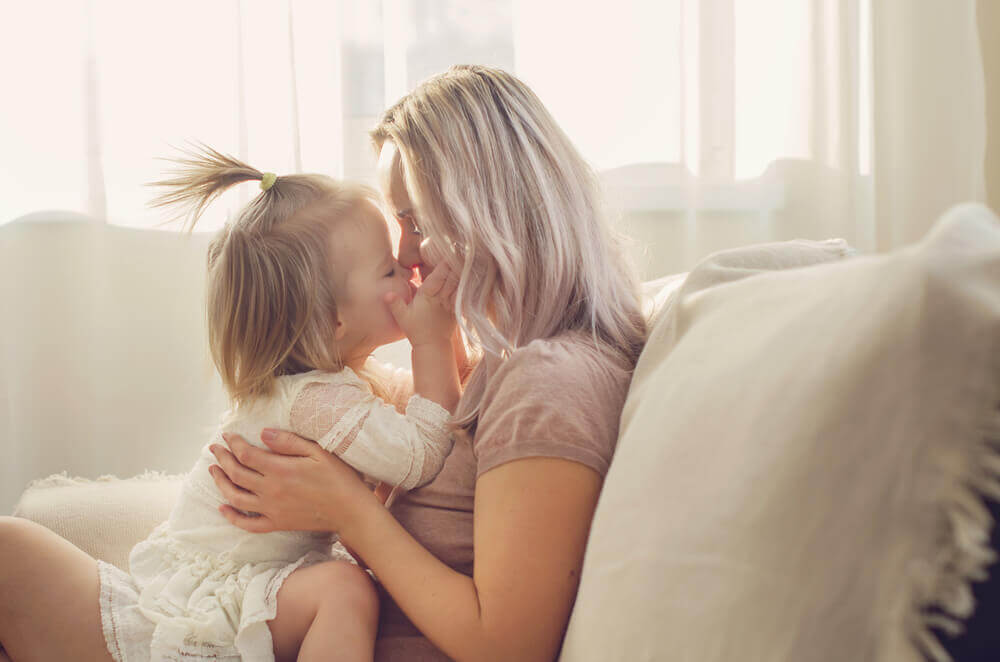
Let the kids know that aggression is not tolerated in the house or anywhere else. Furthermore, parents should also get input from teachers. Teachers can provide feedback on their children’s behaviour at school.
Sometimes, the parents might be unable to handle the situation. In such cases, seek the assistance of the instructor. Then, they can teach the youngster the necessity of expressing their emotions through words.
However, aggressive behaviour may persist despite your best efforts. In that case, you should seek the advice of a child psychologist or take this course on Child Psychology and Mental Health Development.
Further Resources:
Becoming A Childminder: A Definitive Guide
Child Protection: How To Recognise The Signs Of Child Abuse
How to Keep Your Child’s Online Experiences Safe
Safeguarding Children: The Children Protection Policy at Schools
Safeguarding Children Legislation in the UK
Read more on our blog
- The Early Years Foundation Stage (EYFS)
- Sports First Aid | Everything You Need To Know
- Lots of Likes on Instagram: How You Can Quickly Increase Popularity
- Why You Should Use Photo Background Removers For Mobile Devices
- Maximizing ROI: 11 Strategies For Efficient Advertising Spend
- How to Keep Your Data Safe While Applying for Jobs: 6 Tips
- Take Mac Classes to Transform Your Design Profession
- Exploring the landscape of e-commerce hosting
- Personal Branding For Executives: 7 Tips For Maximum Impact
- Transformative Technologies in Senior Living Homes: A Glimpse into 2024
- Available Courses
- Career Bundles72
- Animal care5
- Law8
- Quality Licence Scheme Endorsed111
- Teaching13
- Teaching & Academics Primary27
- Accounting & Finance Primary30
- Training3
- Design9
- IT & Software44
- Healthcare126
- Marketing31
- Health and Safety402
- Construction48
- Electronics25
- Hospitality22
- Health and Social Care219
- Child Psychology37
- Management375
- Business Skills268
- First Aid70
- Employability264
- Safeguarding75
- Food Hygiene103
- Personal Development1277
 Food Hygiene
Food Hygiene Health & Safety
Health & Safety Safeguarding
Safeguarding First Aid
First Aid Business Skills
Business Skills Personal Development
Personal Development







